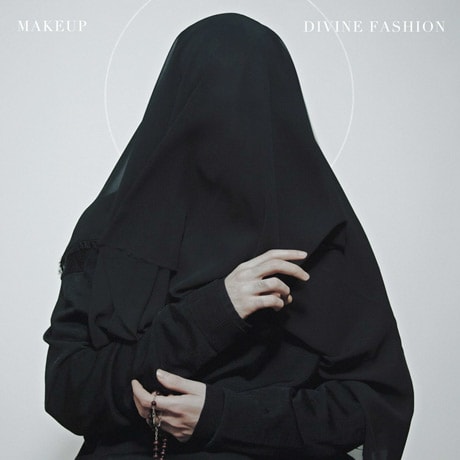Billed as an electronic music producer/filmmaker, Arkia Jahani's Makeup project is one steeped in erudite themes and entertainment-as-academia scripts. Inspired by religious iconography, the six sprawling tracks that make up the Atlantan's debut EP are accompanied by a visual aspect (album art and a music video for "Vessels as Shadows") that, as Jahani explains, "Deals with the limitations of personal identity, gender and religion."
But for the pedigree and political acumen that this EP promises, Divine Fashion is pretty much a straight-up collection of witch house tracks. To fans of brooding, haunted, molasses-y electronic, this isn't necessarily a bad thing, as Jahani proves to be a more than capable producer, expertly proven by the goth-and-screwed vocals of "Body" and the vamp-hop beats of the aforementioned "Vessels as Shadows." But with the exception of the upbeat '80s synth honeydripper "Dior" and the Eno airport-at-sunrise closer "Embryo (Gender Resolve)," much of Divine Fashion moves at a similar pace, showing it as a transitional release by an artist with well-defined intentions.
(Independent)But for the pedigree and political acumen that this EP promises, Divine Fashion is pretty much a straight-up collection of witch house tracks. To fans of brooding, haunted, molasses-y electronic, this isn't necessarily a bad thing, as Jahani proves to be a more than capable producer, expertly proven by the goth-and-screwed vocals of "Body" and the vamp-hop beats of the aforementioned "Vessels as Shadows." But with the exception of the upbeat '80s synth honeydripper "Dior" and the Eno airport-at-sunrise closer "Embryo (Gender Resolve)," much of Divine Fashion moves at a similar pace, showing it as a transitional release by an artist with well-defined intentions.
